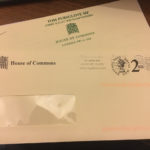 Politicians are often guilty of what George Orwell famously termed “doublespeak”, with their communication riddled with language designed to obscure and muddy our understanding. It perhaps goes without saying that this kind of language is the last thing needed during a crisis, and this is underlined in a new study by Cardiff University, which explored the importance of political communication during the covid-19 pandemic.
Politicians are often guilty of what George Orwell famously termed “doublespeak”, with their communication riddled with language designed to obscure and muddy our understanding. It perhaps goes without saying that this kind of language is the last thing needed during a crisis, and this is underlined in a new study by Cardiff University, which explored the importance of political communication during the covid-19 pandemic.
The researchers examined how people react to the various forms of communication they receive from their local member of parliament, and especially responses to queries submitted to them and their office by constituents.
The study suggests that personalized responses to such inquiries tend to result in higher satisfaction levels from citizens, and a greater likelihood that the citizen will take the effort to engage with that politician again in future. By contrast, a quick, but less personal, response, didn’t have anywhere near the same impact.
Effective communication
“Our research shows the importance of effective communication between politicians and the public,” the researchers say. “The COVID-19 pandemic has made these interactions even more crucial. As people in the UK look to those in power for reassurance during this crisis, tailored responses which address citizens’ specific concerns can make the most impact.”
Of course, the researchers accept that such a personal approach is often incredibly difficult due to the huge volume of communication received by politicians each week. This volume is quite likely to have increased during the pandemic.
They advocate a code of best practice to help ensure that communication is as effective as possible given the realistic demands on politicians time.
“If MPs are to continue to serve their constituents, they need to find effective ways of managing the deluge of enquiries they are likely to be receiving,” the researchers conclude. “They could, for example, harness the use of virtual conferencing to host advice surgeries and address pressing concerns constituents might be facing. If they don’t, they risk frustrating voters at what is a hugely worrying period in their lives.”